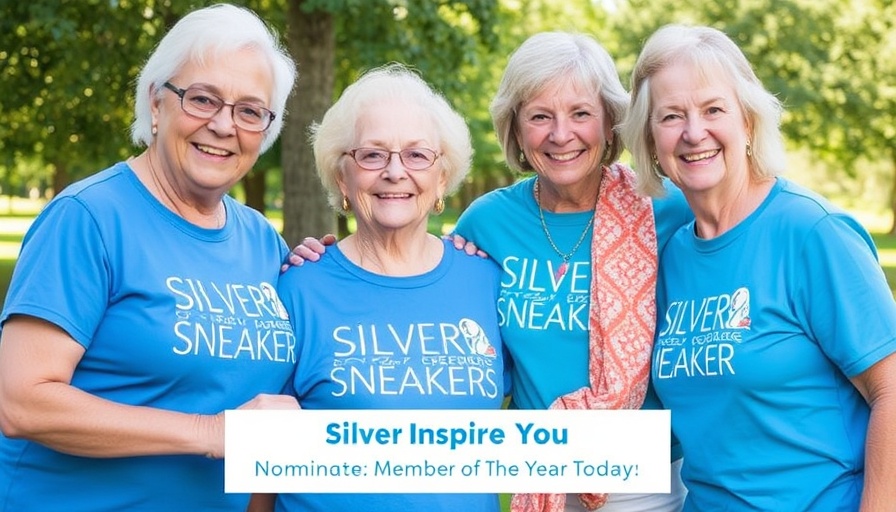
Recognizing Every Day Heroes: The SilverSneakers Member of the Year Awards
At SilverSneakers, the mantra "age is just a number" is embraced wholeheartedly. As part of this belief, the SilverSneakers Member of the Year Awards truly honor those extraordinary members who embody the spirit of active aging. With categories highlighting both physical determination and inspirational journeys, the awards celebrate individuals who show that it's never too late to lead a healthy and vibrant life.
Meet the Award Categories: Who Will You Nominate?
This year introduces two exciting award categories: the Activity Award and the Inspiration Award. The Activity Award recognizes gym warriors, those who are dedicated to their fitness goals and inspire others through their consistent presence and impressive achievements. On the other hand, the Inspiration Award acknowledges members who have transformed their challenges into opportunities, serving as beacons of hope and resilience. These categories collectively reflect the diverse journeys of SilverSneakers members, showcasing both physical accomplishments and the tenacity required to overcome life's hurdles.
Reflecting on the Journey of Last Year’s Winner
One inspiring individual who exemplifies these awards is Grayling “Beaver” Brown, the 2024 Member of the Year. His story is not just about personal fitness achievements; it's about how he has engaged and uplifted his community through fitness. As a proud father, grandfather, and great-grandfather, Beaver's commitment to health illustrates the profound impact one person can have. His infectious spirit and laughter make classes more enjoyable for everyone. The mere thought of a workout class without him is unthinkable for many dedicated attendees. Beaver's journey reminds us of the joys of fitness, not just for physical health, but for emotional and mental well-being as well.
How These Awards Impact the Community
The Member of the Year Awards do more than celebrate individual achievements; they highlight the power of community and encourage members to actively participate in their health journeys. By sharing these stories, SilverSneakers motivates others to take that first step towards their fitness goals, fostering a supportive environment that champions active living. The celebration of these members ignites a sense of belonging and inspires others within the SilverSneakers community to seek their own paths to health and happiness.
Inspiration is a Ripple Effect
As we honor these remarkable individuals, it’s essential to remember that their journeys create a ripple effect. Each story not only uplifts their peers but also plants seeds of determination in those who may be hesitant to begin their wellness journey. By recognizing and celebrating these members, SilverSneakers reinforces the message that no one is alone in their pursuit of health.
Get Involved: Nominate Today!
If you know a SilverSneakers member who has touched your life or the lives of others, consider nominating them for the Member of the Year Awards. It’s a chance to shine a light on their hard work and inspire others to join the quest for fitness. Together, we can celebrate the incredible stories of our SilverSneakers community and encourage everyone to pursue their health goals, proving that inspiration truly knows no age.
 Add Row
Add Row 

 Add
Add 


Write A Comment